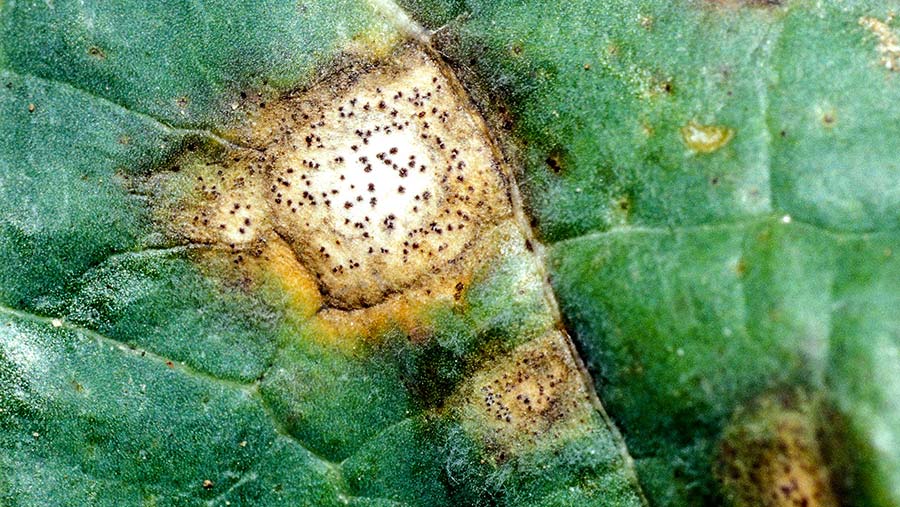Virus discovery may help fight phoma disease in rapeseed
 © Blackthorn Arable
© Blackthorn Arable Oilseed rape crops may now benefit from improved phoma resistance after the discovery of a virus present in the phoma stem canker fungus.
The virus, which was identified by researchers at the University of Hertfordshire, has the potential to enhance the crop’s immune system, protecting it from fungal attack while reducing the severity of phoma later in the growing season.
Phoma stem canker outbreaks cost UK farmers an estimated £100m each year in lost yield, and it is one of the most important winter diseases of oilseed rape.
The disease can be fatal to plants, cutting off their food and water supply, often leading to premature ageing and death.
See also: Autumn disease alert for well-established rapeseed crops
Loly Kotta-Loizou, a lecturer at the University of Hertfordshire, explains that the research is setting the groundwork for the biological control of phoma stem canker.
“What we’ve found can be used as part of an integrated pest management programme aimed at reducing the severity of disease symptoms and improving yield, helping decrease the annual loss to disease every year,” Dr Kotta-Loizou says.

